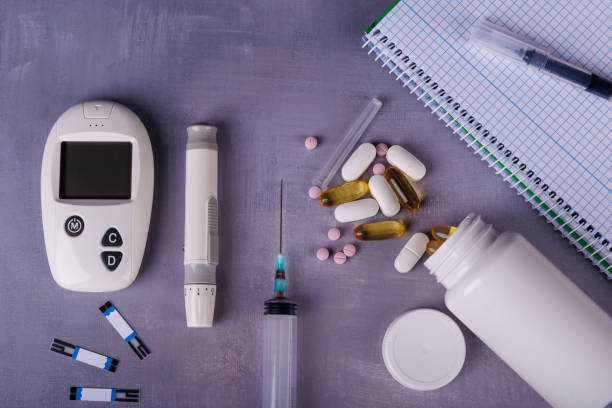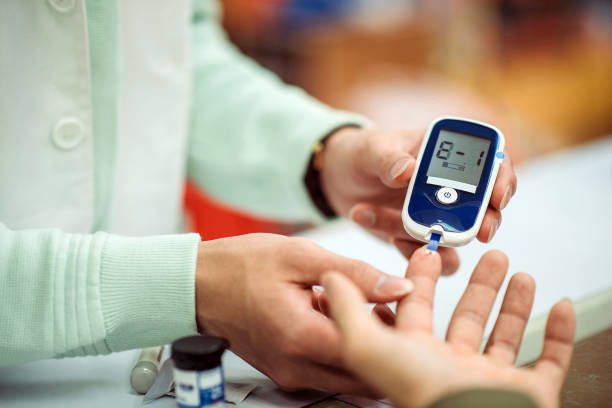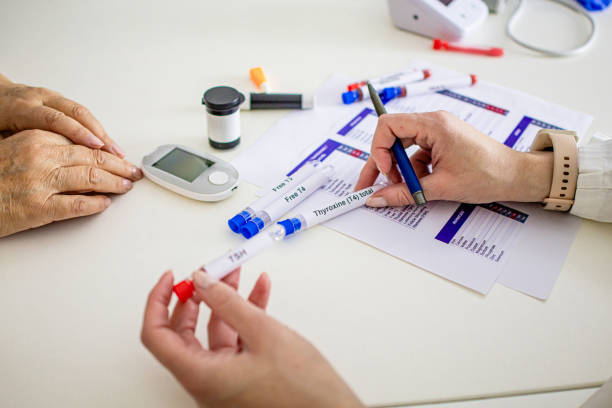When most people think of diabetes, they imagine high blood sugar levels, insulin injections, and careful diet management. However, there is a rare and severe form known as brittle diabetes. This complex condition makes it extremely difficult to maintain stable blood sugar levels, leading to frequent and unpredictable swings between dangerously high (hyperglycemia) and low (hypoglycemia) blood sugar. But what exactly causes brittle diabetes, how does it differ from other types of diabetes, and what treatment options are available? In this guide, we’ll explore everything you need to know about brittle diabetes, including its symptoms, risk factors, and management strategies.
What Is Brittle Diabetes?
Brittle diabetes, also known as labile diabetes, is a rare and severe form of diabetes characterized by unpredictable and extreme fluctuations in blood sugar levels. Despite following a prescribed treatment plan, individuals with brittle diabetes may experience frequent episodes of both hyperglycemia (high blood sugar) and hypoglycemia (low blood sugar), often without an obvious trigger.
Unlike more common forms of diabetes, where blood sugar levels can be managed with medication, diet, and lifestyle changes, it is much harder to control. These sudden and severe blood sugar swings can pose serious health risks, increasing the likelihood of complications such as hospitalization, diabetic ketoacidosis (DKA), or loss of consciousness. Understanding the causes, symptoms, and management strategies for brittle diabetes is essential for improving quality of life and reducing health risks.
Causes of Brittle Diabetes
The exact cause of brittle diabetes isn’t fully understood, but there are a few factors that might contribute to its development:
- Insulin Resistance: Some people with brittle diabetes have a form of insulin resistance, which means their body isn’t responding well to the insulin they take, making blood sugar harder to manage.
- Inadequate Insulin Production: For some individuals, it can occur when the pancreas doesn’t produce enough insulin, a hormone that regulates blood sugar levels. This is more common in people with type 1 diabetes, but it can affect type 2 diabetics as well.
- Poor Control Over Blood Sugar: Factors such as stress, illness, or changes in diet can make it harder for people with brittle diabetes to control their blood sugar. These factors can trigger sudden changes in blood sugar levels.
- Emotional Factors: Stress, depression, or even poor mental health can affect the body’s ability to manage blood sugar. For people with brittle diabetes, emotional stress can contribute to these unpredictable fluctuations.

Brittle Diabetes vs. Other Types of Diabetes
You may wonder how brittle diabetes differs from other types of diabetes, such as type 1 and type 2. Here’s a quick breakdown:
- Type 1 Diabetes: This is a condition where the body doesn’t produce any insulin. People with type 1 diabetes rely on insulin injections or pumps. It can occur in type 1 diabetes when blood sugar levels fluctuate uncontrollably.
- Type 2 Diabetes: In type 2 diabetes, the body doesn’t use insulin properly, leading to insulin resistance. While it can sometimes develop in people with type 2 diabetes, it’s more commonly seen in type 1 diabetes patients.
- Gestational Diabetes: This occurs during pregnancy and typically resolves after childbirth. It is not commonly associated with gestational diabetes, but extreme fluctuations in blood sugar may still occur in some cases.
What sets it apart is the severity and unpredictability of blood sugar levels. It’s not just about having high or low blood sugar—it’s about experiencing sharp, frequent, and difficult-to-control fluctuations.
Symptoms of Brittle Diabetes
The symptoms of brittle diabetes can be alarming and may include:
- Frequent Hypoglycemia: People with brittle diabetes may experience low blood sugar episodes frequently, even if they’ve just eaten. Symptoms of hypoglycemia can include dizziness, sweating, shakiness, confusion, and in severe cases, loss of consciousness.
- Frequent Hyperglycemia: On the other hand, people with brittle diabetes may also have episodes of high blood sugar, which can cause symptoms like excessive thirst, frequent urination, fatigue, and blurred vision.
- Extreme Fluctuations in Blood Sugar: The most defining symptom of brittle diabetes is the frequent and extreme changes in blood sugar levels that happen with no clear reason.
- Difficulty Controlling Blood Sugar: Even with regular medication, diet, and exercise, people with brittle diabetes struggle to keep their blood sugar levels stable.
How Is Brittle Diabetes Diagnosed?
Diagnosing brittle diabetes can be challenging because it is not classified as a separate type of diabetes but rather a term used to describe severe and unpredictable fluctuations in blood sugar control. It primarily affects individuals with type 1 diabetes, although some people with type 2 diabetes may also experience similar instability.
Healthcare providers typically diagnose brittle diabetes when a patient experiences frequent and extreme blood sugar swings that do not respond well to standard diabetes treatments. Some key indicators that may lead to a diagnosis include:
- Severe fluctuations in blood sugar levels that cannot be stabilized with traditional diabetes management strategies.
- Frequent episodes of both hypoglycemia (low blood sugar) and hyperglycemia (high blood sugar) that occur unpredictably.
- Ineffectiveness of standard diabetes treatment, such as insulin therapy and dietary adjustments, in maintaining stable glucose levels.
To confirm it, doctors may use advanced diagnostic tools such as continuous glucose monitoring (CGM), which tracks blood sugar levels in real time, or frequent blood tests, including HbA1c tests, to assess long-term glucose control. In some cases, additional tests may be conducted to identify underlying factors contributing to blood sugar instability, such as hormonal imbalances, gastrointestinal disorders, or psychological stressors.
If you suspect you have brittle diabetes, it is essential to consult with an endocrinologist or diabetes specialist for a thorough evaluation and personalized treatment plan. Early diagnosis and proactive management can help improve blood sugar stability and reduce the risk of complications.ugar tests to track your blood sugar levels over time to confirm the diagnosis.

Treatment and Management of Brittle Diabetes
Managing brittle diabetes can be difficult, but it is possible with the right treatment and lifestyle changes. Here are some ways to manage brittle diabetes:
1. Frequent Blood Sugar Monitoring
One of the most important parts of managing it is keeping a close eye on your blood sugar levels. This means checking your blood sugar more frequently than someone with stable diabetes. Many people with brittle diabetes use continuous glucose monitors (CGMs), which track blood sugar in real time.
2. Medication Adjustments
Your doctor may adjust your insulin dosage to better manage your blood sugar. In some cases, a different form of insulin or medication might be prescribed to help you achieve more stable blood sugar levels.
3. Dietary Changes
Your diet plays a major role in managing diabetes. People with brittle diabetes may need to follow a carefully controlled diet that is rich in fiber and low in simple sugars. Eating small, frequent meals may also help to prevent large fluctuations in blood sugar.
4. Stress Management
Because emotional stress can make blood sugar harder to control, managing stress is crucial for those with brittle diabetes. Activities like meditation, deep breathing, yoga, or even therapy can help reduce stress and stabilize blood sugar levels.
5. Exercise
Regular physical activity can improve insulin sensitivity and help regulate blood sugar. However, people with brittle diabetes should be cautious when exercising, as it can lead to sudden drops in blood sugar. Always check blood sugar levels before and after exercising.
6. Support Systems
Living with brittle diabetes can be challenging, so it’s important to have a strong support system. This could include family, friends, or a healthcare team that helps manage the condition. Emotional support is essential for mental health, as well as for managing the unpredictable nature of brittle diabetes.

Can Brittle Diabetes Be Prevented?
While brittle diabetes cannot always be entirely prevented, proactive diabetes management can help reduce the risk of developing this severe and unpredictable condition. In many cases, it is linked to underlying health conditions, poor blood sugar control, or complications from type 1 diabetes. By taking steps to stabilize blood sugar levels, individuals can lower their chances of experiencing extreme fluctuations.
For those with type 1 diabetes, prevention starts with consistent blood sugar monitoring, timely insulin adjustments, and working closely with a healthcare provider to fine-tune treatment plans. Maintaining a balanced diet, staying physically active, managing stress, and getting enough sleep can also play a crucial role in preventing severe blood sugar swings. While it may not always be avoidable, a proactive approach to diabetes care can help improve overall stability and quality of life.
Conclusion
Brittle diabetes is a complex and severe form of diabetes that causes extreme and unpredictable fluctuations in blood sugar levels. Managing this condition can be challenging, requiring frequent blood sugar monitoring, insulin adjustments, and significant lifestyle changes. However, with the right treatment plan, medical support, and personal dedication, individuals with brittle diabetes can still achieve a good quality of life.
Effective management includes working closely with a healthcare provider to develop a personalized approach that may involve insulin therapy, continuous glucose monitoring (CGM), dietary modifications, and stress management techniques. Support from family, friends, and diabetes specialists can also make a significant difference in handling the day-to-day challenges of brittle diabetes.
If you or a loved one is struggling with brittle diabetes, it’s essential to consult with your doctor regularly to ensure you have the best possible management plan tailored to your specific needs. With proper care and attention, it is possible to regain stability and lead a healthy, fulfilling life.

